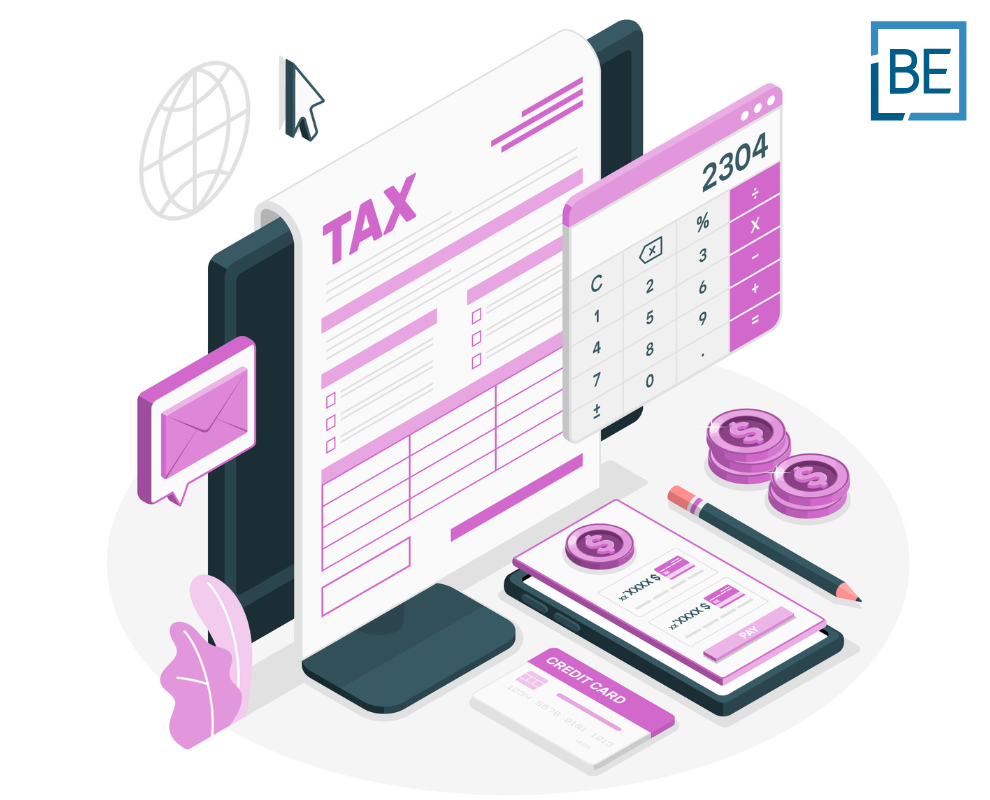Belaws Home ›› Thailand ›› Blog ›› Taxation in Thailand: What you need to know
accounting & secretary
Taxation in Thailand: What You Need to Know
23/08/2023
Taxation is an essential aspect of doing business in Thailand. However, the complex nature of the country’s tax system can make it challenging to navigate. Thailand’s Revenue Code contains numerous rules and regulations that businesses must comply with. Failure to comply with these regulations can result in penalties, legal problems, and financial consequences.
This guide will explore Thailand’s common tax mistakes and penalties and provide valuable insights into Tax in Thailand.
Key points
- Thailand has a complex Tax regime, but it is essential to ensure full compliance.
- Common tax penalties include fines, imprisonment, work permit cancellations, and tax refund issues.
- Common tax-related mistakes include issuing false invoices, incorrectly withholding tax deductions, and failing to register for VAT.
How does Tax Residency in Thailand work?
Determining your tax residency status in Thailand is the first step in understanding your tax obligations.
The Revenue Department classifies individuals into two categories: residents and non-residents. To be considered a resident, you must spend 180 days or more in Thailand during a tax year.
Non-residents are only taxed on income earned within Thailand.
Does Thailand have Taxation for Foreign Income?
Thailand follows the principle of worldwide income taxation for its residents. This means that if you are a resident of Thailand, you are subject to tax on your global income, regardless of where it is earned.
Non-residents, on the other hand, are only taxed on income earned within Thailand.
It’s important to note that foreign-sourced income remitted into Thailand after more than 1 fiscal year or not remitted into Thailand is generally exempted from personal income tax in Thailand.
For more information, please take a look at our blog post.
What is the Corporate Income Tax Rate in Thailand?
Corporate Income Tax (CIT) applies to companies incorporated under Thai laws. The standard CIT rate is 20%. However, small and medium-sized enterprises (SMEs) may qualify for reduced tax rates if they meet certain criteria. SMEs with annual sales not exceeding 30 million baht and paid-up share capital not exceeding 5 million baht are eligible for reduced tax rates ranging from 0% to 20%.
What is the Rate for Personal Income Tax in Thailand?
In Thailand, Personal Income Tax (PIT) rates are progressive, ranging from 0% to 35%. The tax brackets are based on net income and apply to residents and non-residents. Residents are taxed on their worldwide income, while non-residents are only taxed on income earned within Thailand. The tax rates for different income brackets are as follows:
| Taxable Income (Baht) | Tax Rate (%) |
| 0 – 150,000 | 0 |
| 150,001 – 300,000 | 5 |
| 300,001 – 500,000 | 10 |
| 500,001 – 750,000 | 15 |
| 750,001 – 1,000,000 | 20 |
| 1,000,001 – 2,000,000 | 25 |
| 2,000,001 – 5,000,000 | 30 |
| 5,000,001 and over | 35 |
What is the Value-Added Tax (VAT) Rate in Thailand?
Value-Added Tax (VAT) is a consumption tax levied on the sale of goods and services in Thailand. The standard VAT rate is 7%. Businesses with an annual turnover exceeding 1,800,000 baht must register for VAT.
Please note certain goods and services, such as groceries, education, healthcare, and real estate, are exempt from VAT.
For more information on VAT in Thailand, please click here.
What is Withholding Tax?
Withholding tax (WHT) is a tax deducted at the source on certain types of payments made to individuals or businesses. WHT rates vary depending on the payment’s nature and the recipient’s tax residency status. For your reference, here are the tax rates for individuals:
| Type of income | WHT Rate |
| Salary and wages | 0-35% |
| Provision of services | 3%. 15% if the recipient (foreigner) of the income is not a resident of Thailand. |
| Interest | 15% (of payment), |
| Rent | 5% (of payment), |
| Dividend | 10% (of payment), |
| Royalties | 0-35%. 15% if the recipient (foreigner) of the income is not a resident of Thailand. |
More information on WHT can be found here.
What are Double Tax Agreements?
Double tax agreements, also known as double tax treaties or double taxation agreements, are agreements between two countries that prevent the double taxation of income.
Double tax agreements mean that any income earned by individuals or businesses in one country will not be taxed in another (assuming both countries have a double tax agreement).
In Thailand, double tax agreements are signed between the Thai government and the government of another country to provide relief from double taxation for individuals and businesses operating in both countries.
Typically double tax agreements include provisions for reduced tax rates on certain types of income, such as business profits and dividends. Exemptions on certain taxes, such as Corporate Income Tax and Personal Income Tax, are also available through these treaties.
For more information about Double Tax Treaties, please click here.
What are the Tax Penalties in Thailand?
As mentioned above, failing to satisfy your tax obligations could result in penalties being imposed on the offending party.
Tax penalties in Thailand can be divided into two categories:
- Direct penalties, which include fines and imprisonment, and
- Indirect penalties, such as work permit cancellations and tax refund issues.
Businesses must be aware of these penalties to ensure compliance and avoid unnecessary legal trouble.
What are Direct Penalties for Taxation?
Fines
Failing to comply with tax laws in Thailand can result in fines ranging from 1,000 baht to 200,000 baht, depending on the severity of the violation. In addition to the fixed fines, a monthly interest rate of 1.5 percent is applied to the outstanding tax amount.
For certain offenses like failure to deduct withholding tax, non-issuance of invoices, or creation of fake invoices, businesses may be required to pay double the original tax amount.
Imprisonment
In Thailand, even minor offenses related to tax can lead to imprisonment. For instance, forgetting to deduct withholding tax on a single invoice could theoretically result in a one-month jail sentence.
What are Indirect Penalties for Taxation?
Indirect penalties typically include the following.
Asset Seizure
Should guilty parties not be able to pay any outstanding taxes and fines, the Revenue Department has the right to seize their assets. Furthermore, they can seize your assets immediately without needing a court judgment.
Tax Refund Issues
This indirect penalty is not stated in Thailand’s Revenue Code.
Should a company face an issue relating to its tax payment, this could significantly slow its tax refund process. As a result, the company will not be able to receive any tax refund at all until the issue has been rectified. This could cause the company a significant loss of money, as tax refunds are often significant.
Cancellation of a Work Permit
Please immediately pay outstanding taxes to avoid significant issues extending a work permit in Thailand. When you extend the work permit, you will be asked to provide the previous year’s tax certificates and financial statements. Should you not have this, you will not be able to extend your Work Permit, which means you would not legally be able to work in Thailand.
What are some Common Tax Mistakes in Thailand?
To avoid tax penalties in Thailand, businesses must be aware of the common mistakes that often lead to non-compliance. By understanding these mistakes, businesses can take proactive measures to prevent them and maintain good standing with the Revenue Department.
Creating Fake Invoices
One of the most significant tax mistakes businesses make in Thailand is the creation of fake invoices. This illegal practice involves issuing false invoices to understate income or overstate expenses, ultimately reducing the taxable income. However, the Revenue Department monitors such activities and imposes severe penalties on offenders. Businesses should always maintain accurate records and refrain from engaging in fraudulent practices.
Incorrect Withholding Tax Deductions
Another common tax mistake is failing to deduct withholding tax. In Thailand, certain payments, such as rental fees, professional fees, and dividends, are subject to withholding tax. Businesses must ensure that the correct amount of tax is withheld and remitted to the Revenue Department on behalf of the payees. Failure to do so can result in substantial fines and legal consequences.
Failing to Register for VAT
Value Added Tax (VAT) is important to Thailand’s tax system. Businesses with an annual turnover exceeding 1.8 million baht must register for VAT. Failure to register for VAT or comply with VAT regulations can lead to penalties and financial setbacks. Businesses must understand their VAT obligations and fulfill them accordingly.
Freelancers running their businesses without officially registering as companies might earn more than the VAT threshold. If they don’t pay the necessary VAT, they could be required to pay back the owed VAT and face extra fines.
In such a case, if your earnings exceed the VAT threshold, a possible solution could be registering your business as a company. This protects you offers you the protection of limited liability and lets you deduct any VAT you paid as part of your expenses.
Failing to Issue invoices
If your company issues an invoice that does not satisfy the Revenue Department’s standards, you may be subject to a fine of THB 2,000 per invoice.
The Revenue Department defines an invoice as any financial record, including tax invoices, tax certificates, debit notes, credit notes, etc.
Additionally, if your company intentionally fails to issue an invoice to avoid paying taxes, the punishment could be a maximum of seven years in jail and a THB 200,000 fine. Guilty parties will also be liable to pay two times the amount of tax owed with 1.5 percent interest per month added.
How to avoid making mistakes?
Navigating the complex taxation landscape in Thailand is crucial for businesses operating in the country. By understanding the common tax mistakes and penalties, businesses can take proactive steps to ensure compliance and avoid unnecessary legal troubles. Examples of this include:
- Maintaining accurate financial records,
- seeking professional advice,
- staying updated with tax regulations,
- conducting regular internal audits, and
- utilizing accounting software to reduce the risk of human errors
By prioritizing tax compliance, businesses can establish a strong foundation for sustainable growth and success in Thailand’s dynamic business environment.
How can Belaws help?
For more information about taxation in Thailand, why not talk to one of our experts now?
Please note that this article is for information purposes only and does not constitute legal advice.
Our consultations last for a period of up to 1 hour and are conducted by expert Lawyers who are fluent in English, French and Thai.
Consultations can be hosted via WhatsApp or Video Conferencing software for your convenience. A consultation with one of our legal experts is undoubtedly the best way to get all the information you need and answer any questions you may have about your new business or project.
USD 150
Up to 1 hour
Online payment (Paypal or Credit card)
Legal consultation can be conducted in English, French or Thai
Legal consultations are handled by experienced lawyers from the relevant fields of practice
Frequently asked questions
How much tax do you pay in Thailand?
The amount of tax you pay in Thailand depends on various factors, including your residency status and income. Thailand has a progressive Personal Income Tax (PIT) system with rates ranging from 0% to 35% based on your taxable income. Corporate Income Tax (CIT) for companies incorporated under Thai laws is generally 20%, but certain SMEs may qualify for reduced rates.
Are taxes high in Thailand?
Tax rates in Thailand are not exceptionally high compared to some other countries. The Personal Income Tax (PIT) rates are progressive, with higher rates applying to higher income levels. Corporate Income Tax (CIT) is generally 20%, but reduced rates are available for qualifying SMEs.
Does Bangkok have sales tax?
Thailand has a Value-Added Tax (VAT), which is a consumption tax applicable to the sale of goods and services throughout the country, including Bangkok. The standard VAT rate in Thailand is 7%, but certain goods and services are exempt from VAT.
Do digital nomads pay tax in Thailand?
Digital nomads in Thailand are subject to tax regulations based on their residency status and income earned within Thailand. If they meet the criteria for tax residency and earn income within Thailand, they may be liable for Personal Income Tax (PIT) on that income.
How much tax in Thailand for foreigners?
Taxation in Thailand depends on various factors, including residency status and income. Foreigners who are tax residents in Thailand are subject to Personal Income Tax (PIT) on their worldwide income. Non-residents are only taxed on income earned within Thailand.
What is a good salary in Thailand?
The concept of a “good salary” in Thailand varies widely based on individual circumstances and lifestyle choices. Salaries can range from modest to high, depending on the job, industry, and location. It’s essential to consider your personal financial goals and living expenses when determining what constitutes a good salary for you.
What is the average salary in Thailand?
The average salary in Thailand can vary significantly depending on the region and industry. As of the article’s publication, Thailand’s average monthly wage was around 20,000 to 25,000 Thai Baht. However, specific salary levels can differ widely based on factors such as qualifications, experience, and job position.
Is there tax-free in Thailand?
Thailand does not have a general tax-free income threshold for Personal Income Tax (PIT). However, some types of income, such as certain foreign-sourced income remitted into Thailand after more than one fiscal year or not remitted into Thailand, may be exempt from PIT. Tax exemptions and deductions may apply to specific situations, so it’s essential to consult tax authorities or professionals for personalized guidance on tax matters in Thailand.
Related articles
Subscribe today
Subscribe today
To our newsletter for all the latest legal news
in South East Asia, Belaws updates and
special promotions on our services.
To our newsletter today for all the latest legal news in South East Asia,
Belaws updates and special promotions on our services.







